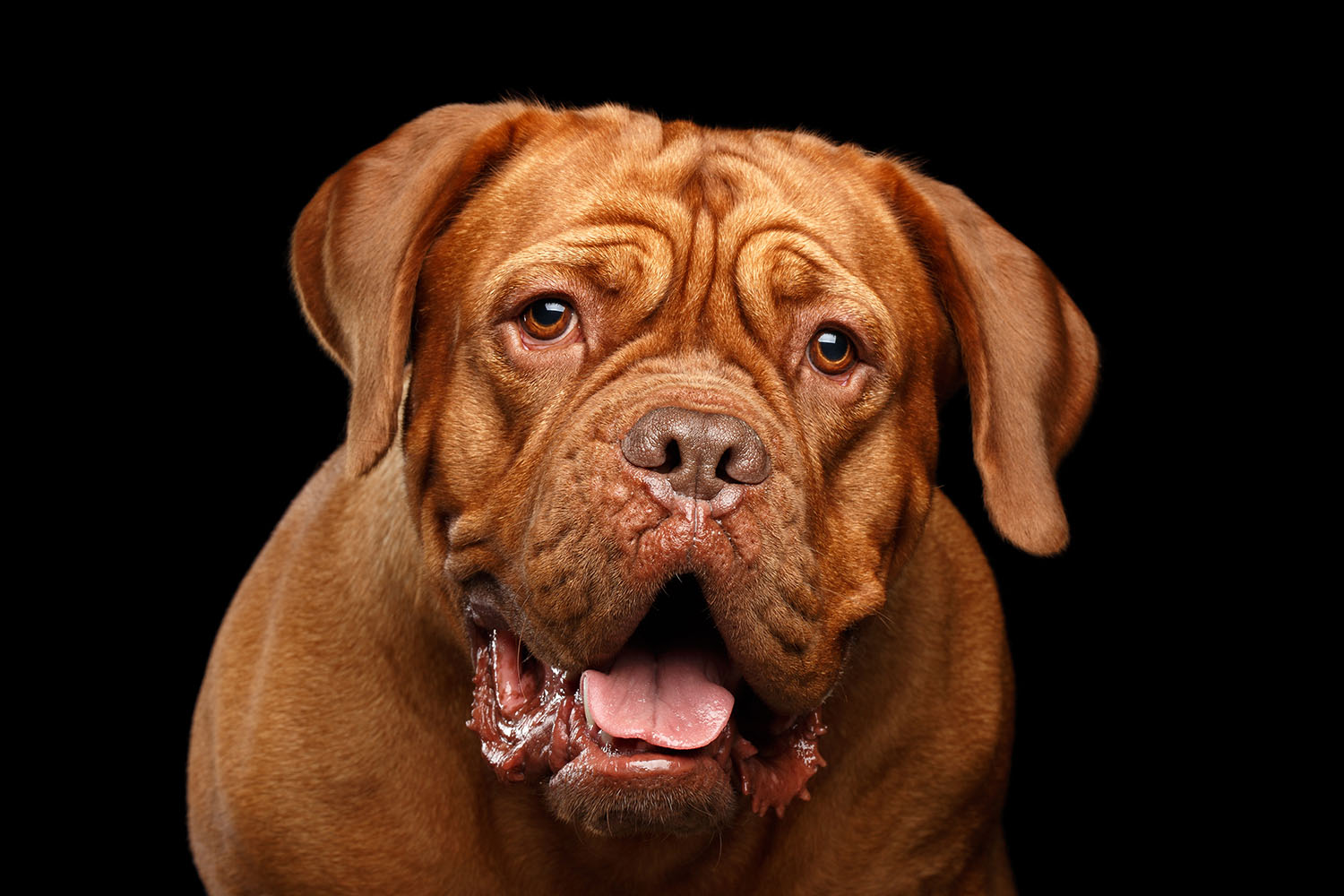Dogs drool for all kinds of reasons, but if your best mate is creating huge puddles, there might be a problem
Let’s explore the wet world of excessive salivation
What is saliva?
Saliva is a watery secretion that lubricates the mouth (and the food to aid swallowing). It also contains important substances that help digest food and keep teeth and gums healthy.
Salivary glands constantly produce and secrete saliva into the oral cavity. When we eat, saliva production increases. There are four major salivary glands on each side: parotid, mandibular, sublingual and zygomatic. How much saliva is produced by these glands is controlled by the brain. There are salivary nuclei in the brain stem that stimulate the glands to produce more saliva. There are also ‘higher’ parts of the brain that can excite or inhibit the salivary nuclei. Diseases affecting the pharynx, oesophagus and stomach can also cause excessive production of saliva
It’s kind of complex, but you just need to know that there’s more to saliva production than what’s going on in the mouth.
Terms meaning excess saliva
The medical term for excessive production of saliva is ptyalism (although we often say hypersalivation to avoid words with a silent p!)
It’s also worth mentioning the term pseudoptyalism. This is where we see a lot of drool, but it’s not due to overproduction. Instead it’s due to a problem swallowing a normal amount of swallowing or an anatomical abnormality that lets saliva dribble out of the mouth.
What causes excessive saliva production?
Because of all the different things that affect saliva production, there are lots of potential causes of ptyalism (and pseudoptyalism). Some are nothing to worry about, others are very serious.
Here is a (non-exhaustive) list. It will hopefully help explain why when you ring us up and ask: ‘Why is my dog drooling a lot?’ we might not have a simple answer.
Conformational problems
droopy lips – lots of large breed dogs have lip conformation that allows saliva to dribble out
oral and pharynGeal problems
foreign body (eg bone fragment stuck in the mouth)
tumours
abscess
dental disease
kidney disease (can cause mouth ulcers)
ingestion of a caustic or irritating substance
ingestion of a foul tasting substance
burns (eg chewing on an electric cord)
neurological or functional disorder of the swallowing mechanism (eg tick toxicity)
pain
SALIVARy gland problems
foreign body (eg grass awn or splinter)
tumour
inflammation (sialoadenitis)
over-proliferation of cells (hyperplasia)
loss of blood supply (infarction)
salivary cyst (sialocele)
oesophageal and gastrointestinal Problems
Megaoesophagus
Oesophageal foreign body
Oesophageal tumour
Oesophageal inflammation (eg due to swallowing something caustic or irritating or from reflux of stomach acid)
Oesophageal stricture
Hiatal hernia (where the stomach bulges up into the chest cavity)
Bloated stomach
Gastric ulcer
Any problem that causes nausea (eg pancreatitis, parvo, intestinal foreign body)
metabolic problems
Hepatoencephalopathy (a consequence of severe liver disease)
Fever
Uraemia (a build up of toxins due to kidney failure)
Immune-mediated diseases
neurological problems
Botulism
Tetanus
Dysautonomia
Seizure
Nausea due to vestibular disease
Drugs and toxins
Caustic/corrosive toxins (eg cleaning products, petrol based products)
Bad tasting substances
Substances that stimulate salivation
Animal toxins (eg cane toads)
Irritant plants (eg poinsettia, daffodil bulbs)
Drugs or toxins that cause nausea
How do we make a diagnosis?
Our initial goal is to decide whether we have a serious cause of hypersalivation or not.
We’ll start with taking a thorough history including general health status, current medications, possible toxin exposure and other symptoms.
On physical examination we’re looking for signs of nausea (lip smacking, retching, food aversion), oral lesions. smelly breath and ability to swallow/gag (among other things).
If we’re concerned about a more serious cause (eg foreign body, liver disease), we are likely to suggest further investigation. This might involve blood/urine testing, X-rays and/or ultrasound.
How do we treat excessive salivation?
The treatment will depend on the cause. That said, we aren’t always able to identify the exact cause.
If we find a happy dog, who can eat fine and seems normal in other respects, we may not do anything more than suggest watchful waiting.
If we’ve identified the cause, we’ll treat that and the excess salivation should resolve. Rarely do we give specific medication to reduce saliva production.



